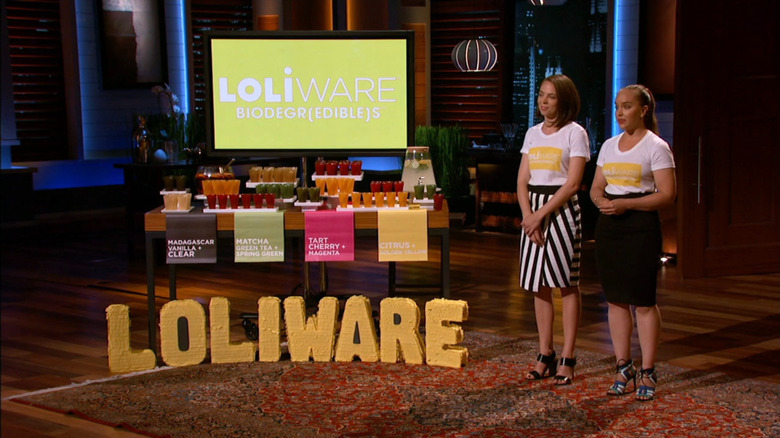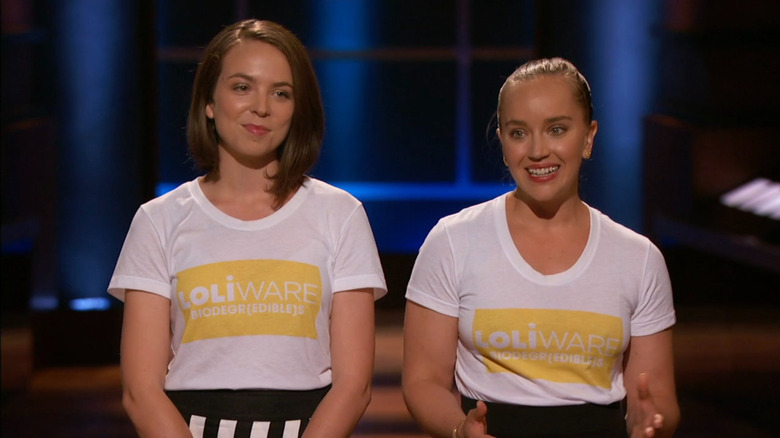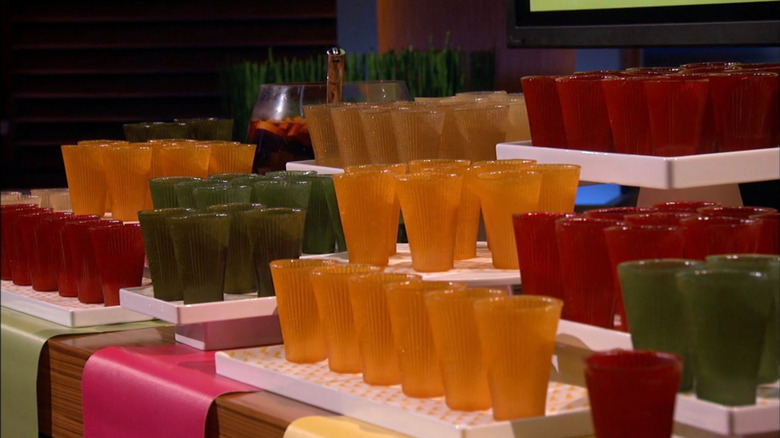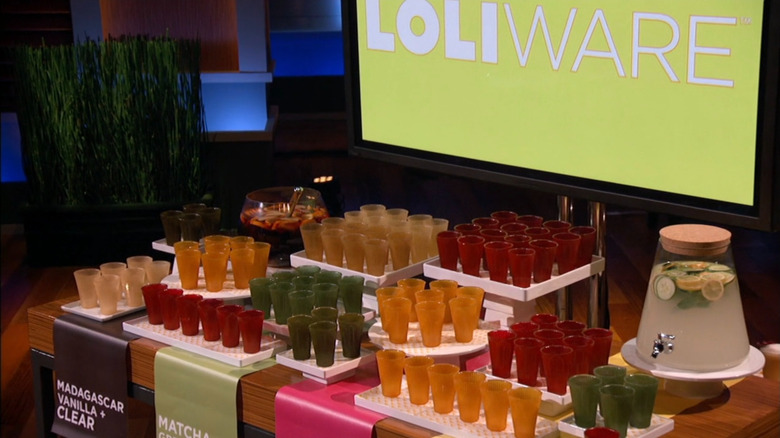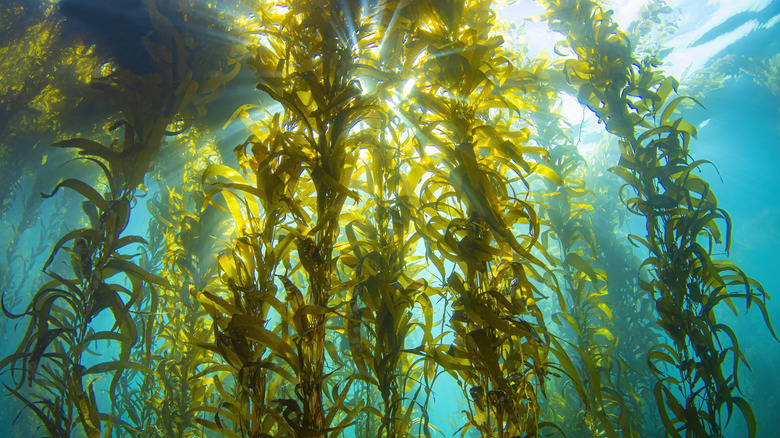Where Is Loliware From Shark Tank Today?
We may receive a commission on purchases made from links.
The pristine natural beauty of Hawaiian beaches has been an inspiration for generations, including for Loliware founder Chelsea "Sea" Briganti, who grew up by these beautiful waters. But as the years went by, Briganti saw the idyllic beaches and shorelines of her youth filled with plastic garbage, leaving her to wonder what could be done to turn the tide of ocean pollution.
With her cofounder Leigh Ann Tucker, Briganti engineered an edible cup for a 2010 Jell-O competition that saw rapid viral success, including an Oprah Winfrey recommendation in 2013. Two years later, Briganti and Tucker landed their new company on ABC's "Shark Tank", selling "biodegr(edible)" party cups made of flavored vegetable gelatin.
Although the edible cup is a thing of the past, as is Tucker's partnership, Loliware is pursuing Briganti's anti-pollution goals perhaps better than ever. Here's how it all went down.
How did Loliware fare on Shark Tank?
Single-use plastics have been a successful target for "Shark Tank" businesses, including for Loliware, when it appeared on Season 7, Episode 2. Co-founders Chelsea Briganti and Leigh Ann Tucker sought $150,000 from the panel of wealthy entrepreneurs in exchange for 10% ownership of their company, selling what Briganti called "biodegr(edible)" cups — "both biodegradable and edible."
"Loliware is a new category of sustainable materials that you can eat," Tucker said, before taking a bite right out of her cup and immediately wowing several of the Sharks. Loliware's edible cups were made of organic, gluten-free vegetable gelatin that came in several flavors, such as vanilla or citrus — or, if they weren't eaten, Briganti noted that "our cups go from cup to soil in 60 days," infinitely faster than disposable plastic.
Thanks to their record of pre-existing business success — and custom drinks for each Shark, served in complementary flavors of Loliware cups — a bidding war broke out between four of the five Sharks. Ultimately though, Briganti and Tucker chose Dallas Mavericks then-owner Mark Cuban, and New York real estate mogul Barbara Corcoran to share a 25% stake for $600,000.
What happened to Loliware after Shark Tank?
Although Loliware was already a successful small business prior to "Shark Tank," its appearance on the show led to significant growth. After the episode, Loliware's line of edible cups quickly sold out, and the company gradually debuted new flavors, including an unflavored cup at Cuban's suggestion.
However, the explosive demand for such a unique product meant that Loliware soon ran into manufacturing difficulties. At the time there were not a lot of established processes for making edible cups, so Loliware had to come up with much of it on the fly.
Despite lucrative sales channels, including the Four Seasons hotel chain and a promising direct-to-consumer e-commerce business, ongoing manufacturing issues eventually led Loliware to stop selling edible cups altogether — but the company was not yet done for.
Is Loliware still in business?
Manufacturing issues may have helped cut Loliware's edible cups business short, but the company changed to meet the challenge. In 2018, co-founder Leigh Ann Tucker left Loliware, and went on to work for More Good, a cocktail mixer company, and Recess, a line of canned seltzers and "mood drinks" available on Amazon. In the meantime Chelsea Briganti, now helming the company solo, developed the edible Lolistraw, essentially a straw made of vegetable gelatin much like its cups.
After a successful Kickstarter campaign, the Lolistraw evolved into the Blue Carbon straw, a biodegradable (but not edible) seaweed-based straw which helped raise over $15 million in funding and secured a contract with José Andrés Group restaurants. This pivot had Loliware become another "Shark Tank" alum building a sustainable business on seaweed.
Former "Shark Tank" host Mark Cuban still lists Loliware among his active investments, which tracks with the enthusiasm he showed in the episode. However, Barbara Corcoran does not publicly include Loliware among her investments, suggesting she is no longer involved with the company.
The future of Loliware
The Blue Carbon straw is Loliware's example use for its SEA Resin technology, a sustainable seaweed resin made with all-natural ingredients that easily composts, without the need for specialized facilities. In pellet form, Loliware's resin is compatible with existing plastic manufacturing technology, making it more appealing to the company's base of exclusively commercial clients. As Chelsea Briganti told Forbes in an interview, "I can literally walk into a plastic manufacturer tomorrow anywhere on the planet, and they can replace any single-use plastic with our pellet."
In addition to its straws, Loliware rolled out a seaweed utensil set to show how its pellets can make easily compostable flatware. With an eye on the future, it is now introducing AI-driven seaweed biomaterials, which Loliware's website describes as "New to planet. Designed to disappear."
Loliware's seaweed pellet technology is a creative way for companies to approach regulations around plastic straws and similar products. That's part of why, in 2024, TIME Magazine named Loliware one of America's top 250 greentech companies, suggesting a future as bright as its initial "Shark Tank" appearance, which is available on Prime Video by Amazon.
